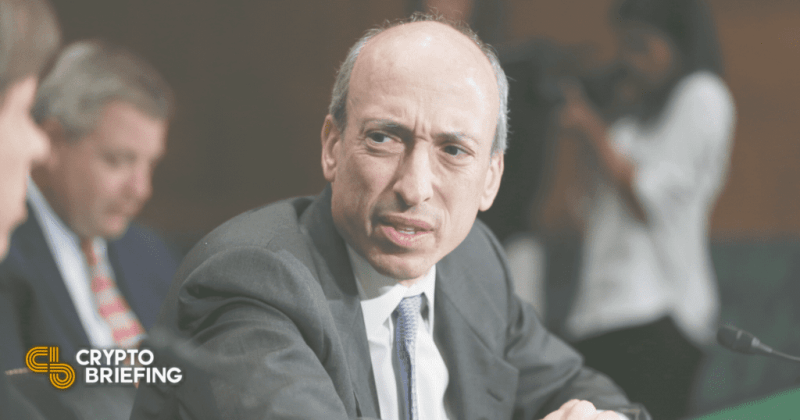The association argues that Gensler’s perceived bias could compromise due process rights and fair evaluation of important industry questions.
The Blockchain Association, a leading group in the digital asset industry, has made a bold call for Gary Gensler, the Chair of the United States Securities and Exchange Commission (SEC), to recuse himself from any decisions concerning enforcement actions that involve digital assets as securities.
The paper, written by Jake Chervinsky and Marisa Coppel, states that “SEC Chair Gary Gensler has made clear that he takes a different view: in his mind, all digital assets other than bitcoin constitute securities, end of story.”
This stance indicates a preconceived bias that could potentially compromise the due process rights of those under investigation, the Association further argues.
The SEC’s Wells process, a key element of due process, allows the accused party to present their defense through evidence and arguments. If the SEC staff decides to move forward with filing an action after the Wells process, they must present their evidence to the Commissioners, who then decide whether to proceed. The Association fears that Gensler’s perceived bias could obstruct a fair evaluation of vital questions that are of importance to the digital assets industry:
“The Wells process sets forth an adversarial process in which SEC staff act as prosecutors and the Commissioners act as neutral arbiters weighing the competing positions of the staff and the person under investigation.”
The paper stiuplates that Gensler acts with enough bias to “taint” how the non-crypto world sees the space, affecting how the lawsuit could wrap up. Without the SEC and the chair acting as a “neutral arbitror” but as the prosceution, an aggressive approach to the industry shows that there is no reason for Gensler to be included in frivolous lawsuits against industry leaders.
Chervinsky further commented:
“The time has come for Chair Gensler to recuse himself from all decisions related to digital asset-related enforcement matters. If he refuses, then I expect enforcement targets will begin raising the matter of his recusal in SEC proceedings and in federal district courts.”
